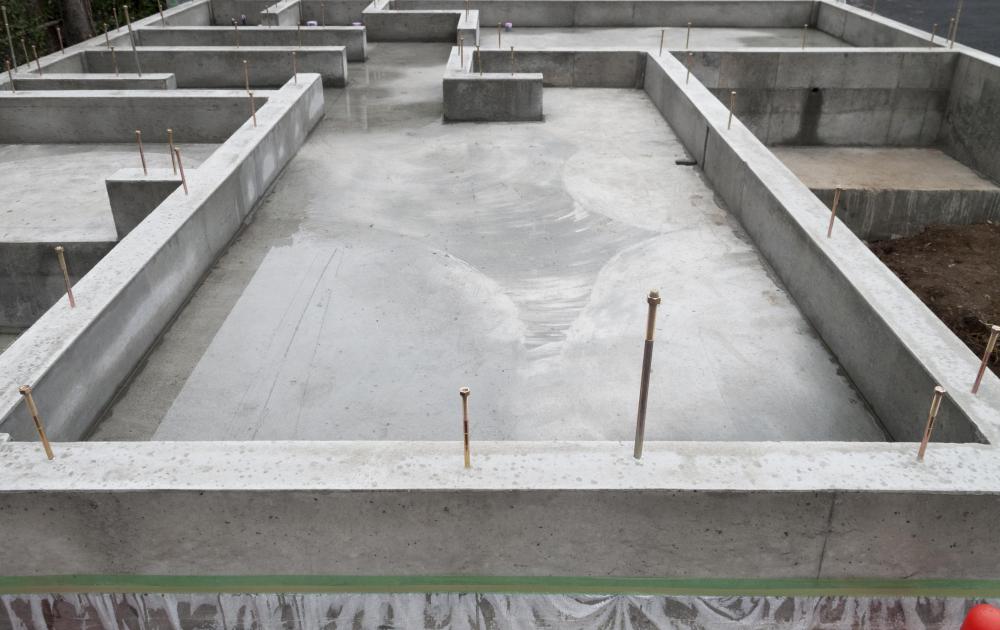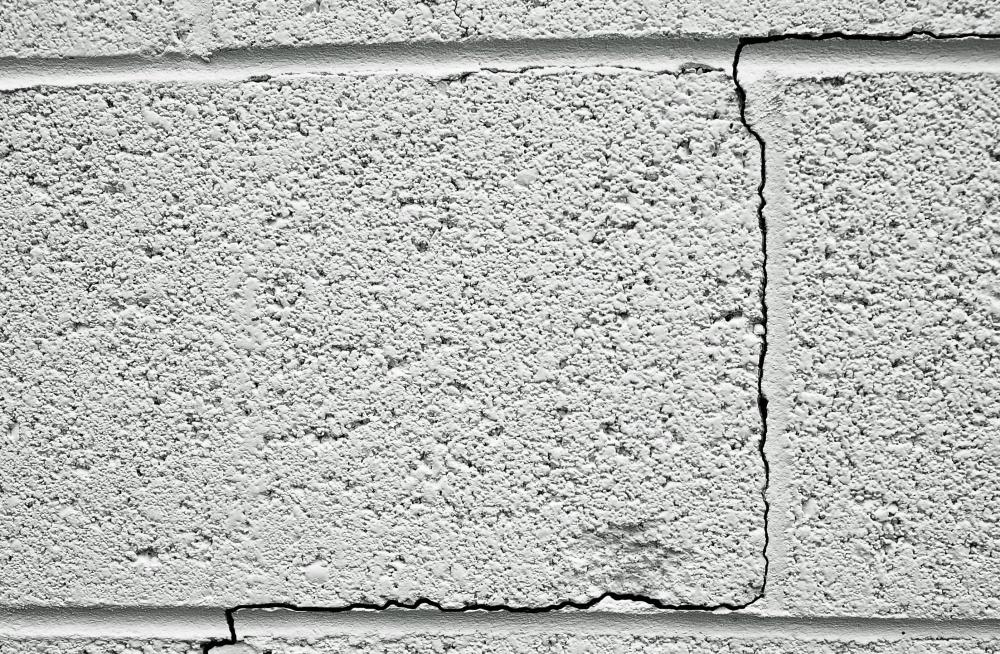At HomeQuestionsAnswered, we're committed to delivering accurate, trustworthy information. Our expert-authored content is rigorously fact-checked and sourced from credible authorities. Discover how we uphold the highest standards in providing you with reliable knowledge.
What is Foundation Sealing?
Foundation sealing is the process of waterproofing the foundation of a home or building in order to extend its life. The sealing process for a new home or building can be far different from that of an established foundation. In some cases, both the foundation and the basement may need to be sealed, depending on the environmental factors in the area.
Most foundations are created from concrete. The concrete, though strong and tough, can have small pores or cracks that allows water and gases to pass through it over time. In a building with a basement, these small holes can lead to flooding there, if the foundation is not waterproofed. Foundation sealing, or waterproofing, can be a simple step in damage prevention.

Sealing often takes place during construction. While the process of sealing a foundation will differ from region to region, generally it includes three steps. These steps are typically completed by the builder. If a contractor is not willing to seal the foundation, a liquid sealant can be applied to it, and a basement, after construction is complete.

The first step in new foundation sealing often includes the application of a mastic coating to the surface of the foundation. A drain board is then usually applied over the coating, with drain tiles placed at the base of the foundation. This board is meant to divert water away from the foundation, and direct it outside. If the home has a basement, vapor resistant gravel may also be used beneath the basement slab. The edges of the basement flooring may also be sealed to prevent water and gas leaks into the home.

If an established foundation needs to be sealed, the process can often be completed by the homeowner with the help of a structural engineer. The engineer can ensure there are no major structural flaws in the home that have caused the foundation to crack or break. Many homeowners use a caulk or foam to seal any existing cracks in the foundation. When that task is done, work to waterproof the foundation and basement can be completed to prevent further damage.
Foundation sealing and basement waterproofing, in an established home, is done with a waterproofing liquid. Before applying this liquid to the walls and floors, all cracks must be filled. Cracks larger than 1/8 inch (about 3 mm), can be filled with epoxy or latex cement.
Large holes should be repaired with a thick mortar. This mortar is often created by mixing one part cement with two parts sand. These dry ingredients are mixed with enough water to make a stiff paste which is then used to fill the holes. Cracks smaller than 1/8 inch (about 3 mm) do not need to be repaired. All repairs should be dry before applying the waterproofing liquid used for foundation sealing.
AS FEATURED ON:
AS FEATURED ON:













Discuss this Article
Post your comments